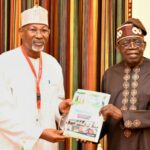A bill seeking to establish a national electoral body to conduct local government elections across the 36 states of the federation may have run into a constitutional storm, following indications that the bill conflicts with the 1999 Constitution as amended.
While the bill seeks to establish a central body to conduct council elections across all the states of the federation, Section 197 (1) states that “there shall be established for each State of the Federation the following bodies, namely -(a) State Civil Service Commission;
(b) State Independent Electoral Commission; and (c) State Judicial Service Commission.
Since the return of democratic rule in 1999, local government elections have, in accordance with the provision of Section 197(1) (b) of the Constitution, been exclusive conducted by State Independent Electoral Commission (SIEC).
However, shortly after the Supreme Court’s recent ruling that local government councils be financially autonomous, the federal government, which instituted the suit, discovered that the judgement threw up fresh constitutional challenges.
Several months after the Supreme Court judgement, the federal government appears to be in a fix on what to do with Section 162 (6-8) of the constitution which provides for the operation of a joint state/local government account.
Niger state senator Mohammed Sani Musa, sponsored the bill seeking the establishment of a new body called National Independent Local Government Electoral Commission (NILGEC) to take over the conduct of council elections from SIECS.
Even though the Supreme Court had by its ruling, outlawed the section, it, nonetheless remains in the constitution. The National Assembly may be unable to ammend this section of the Constitution, as any constitutional amendment requires the support of majority of the state assemblies. As things stand, State Assemblies expected to back this aspect of constitutional amendment.
Flaying the move, Yiaga Africa faulted what it described as the “increasing calls for the abolition of State Independent Electoral Commissions (SIEC) and the transfer of the responsibility of conducting local government elections to the Independent National Electoral Commission (INEC).”
Noted YIAGA Africa, “This policy proposal is fundamentally flawed and would have far-reaching implications for Nigeria’s 25-year democracy if implemented. First, it will overstretch an overburdened INEC leading to poorly conducted local elections. Second, it undermines the autonomy of states guaranteed in the Constitution, potentially leading to an overconcentration of power in the Federal government.”
In addition, stated YIAGA Africa, the proposal “weakens local democracy and citizens’ participation as local communities will be stripped of the opportunity to participate in decision-making.”
Continued the NGO: “The abolition of SIECs contravenes the constitutional principle of state autonomy. The Constitution provides for a federal structure that ensures the devolution of powers to the states. By centralizing the conduct of local government elections under INEC, the proposal undermines this federal structure and erodes the autonomy of the states, leading to an unconstitutional overconcentration of power at the federal level.
“Eliminating SIECs would weaken the states’ capacity for self-governance. At a time, the demand for local government autonomy enjoys national consensus, scrapping SIECs is a contradiction and it undermines the principles of federalism which hinges on devolution of power,” it declared



